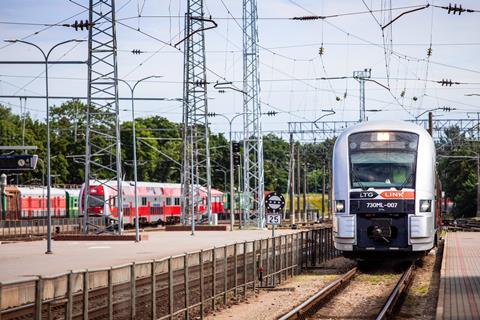
LITHUANIA: Procurement of electric trains and service enhancements which aim to more than double ridership are included in a long-term operating agreement signed by the Ministry of Transport & Communications and the national railway’s passenger division LTG Link.
The public service obligation operating agreement running for 10 years from January 1 2023 ‘marks a new milestone in the development of green rail transport’, said LTG Link CEO Linas Baužys.
’Long term funding will allow us not only to plan and implement what passengers need today, but also to plan for the renewal and expansion of a fleet of trains that is accessible to all people.
‘With the changes planned over the next 10 years, we hope to make a targeted contribution to promoting sustainable rail travel, reducing the environmental impact of transport and increasing the accessibility of rail services across the country.’

Under the agreement the government is to provide an average of €40m a year to support operations and fleet renewal. This is intended to enable LTG Link to attract additional funding from the domestic and international markets to finance the procurement of new trains.
Minister of Transport & Communications Marius Skuodis said the agreement would ‘increase the quality requirements for the company, will help strengthen control, co-ordinate schedules and provide long term financing’, and serve as a ’solid foundation for the renewal of the entire train fleet’.
There are mechanisms for local authorities to contribute to service improvements according to their regional needs, with plans including better co-ordination with bus services, integrated ticketing and the creation of park & ride sites at stations.
LTG Link carried almost 4·3 million passengers between January and November 2022, and the target is to reach 6 million passengers in 2025 and up to 10 million by 2030.

















